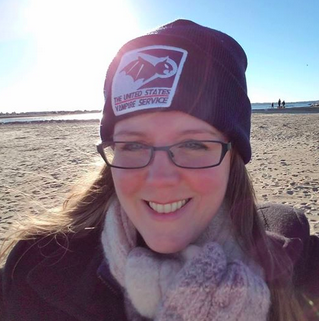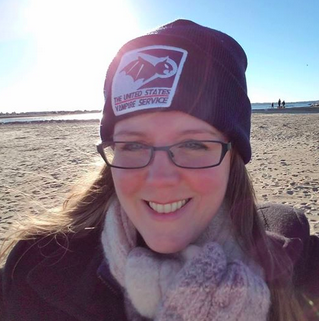
 Editor’s note: January is National Mentoring Month. To celebrate, we’re featuring our own stories and experiences with mentoring. Below is a personal essay from Robyn Bradley, who is on our marketing team. A slightly different version of this essay appeared on her author website.
Editor’s note: January is National Mentoring Month. To celebrate, we’re featuring our own stories and experiences with mentoring. Below is a personal essay from Robyn Bradley, who is on our marketing team. A slightly different version of this essay appeared on her author website.
When I first met my mentor, Larry Starkey, he scared the heck out of me.
It was the fall of 2003, and I’d just started teaching a writing course for first-semester students at Massachusetts School of Law.
I was greener than green; it was the second time in my life I was hired without a lick of experience (radio was the first). The director of the writing program wasn’t too concerned with my newbie status; of course, I wasn’t privy to the insight he had about first-time teachers: we bust our butts in an effort to excel and to avoid failure.
Larry was a fellow writing instructor, and he was, in a word, brilliant. Not just in writing but in thinking. See, Larry was an intellectual and his intelligence awed and intimidated me. All of us writing teachers were on the same email distribution lists, and whenever Larry responded to a message, I’d have to sit with the email for a while to make sure I “got” what he was saying.
At first, I feared him. Then, I admired him. Finally, I befriended him. Or, I should say, he befriended me, since I was still too scared to say too much in his presence. We began our friendship through email. Then, we’d meet up for coffee in the cafeteria. Eventually, we would sit comfortably with one another in the gazebo in front of the school, discussing a wide variety of topics: life, love, politics, reading, and, of course, writing.
Larry became my informal writing mentor. I think mentors are crucial in life no matter what you choose as your vocation. The key is finding the right one. Larry had a long and colorful writing background—he’d been a newspaperman, a big-shot PR guy in NY, and a scriptwriter for General Hospital during the Luke and Laura heyday. He was a lover of history—true history, if such a thing even exists. He published the book Wilkes Booth Came to Washington in 1976. During the entirety of our friendship and mentorship, he was working on his magnum opus, a book tentatively titled The Law, God, and Samuel Adams.
Through our conversations—both in person and via email—Larry helped me discover my own confidence as a writer. He read drafts of my bad novels and short stories and always provided tactful, yet honest feedback. He encouraged me whenever I wanted to give up, often sharing anecdotes from his own life and experience as a writer. He wouldn’t allow me to wallow too long, reminding me that writers write and my job was to show up and to demand my muse do the same.
Sadly, Larry passed away in 2011 at the age of 69, his magnum opus unfinished. I think about him often, particularly the lessons I learned and the epiphanies I made while under his watchful gaze. He was a wonderful friend and mentor—someone who had a profound impact on my personal and professional life. I’ll forever be grateful for the time I had with him.